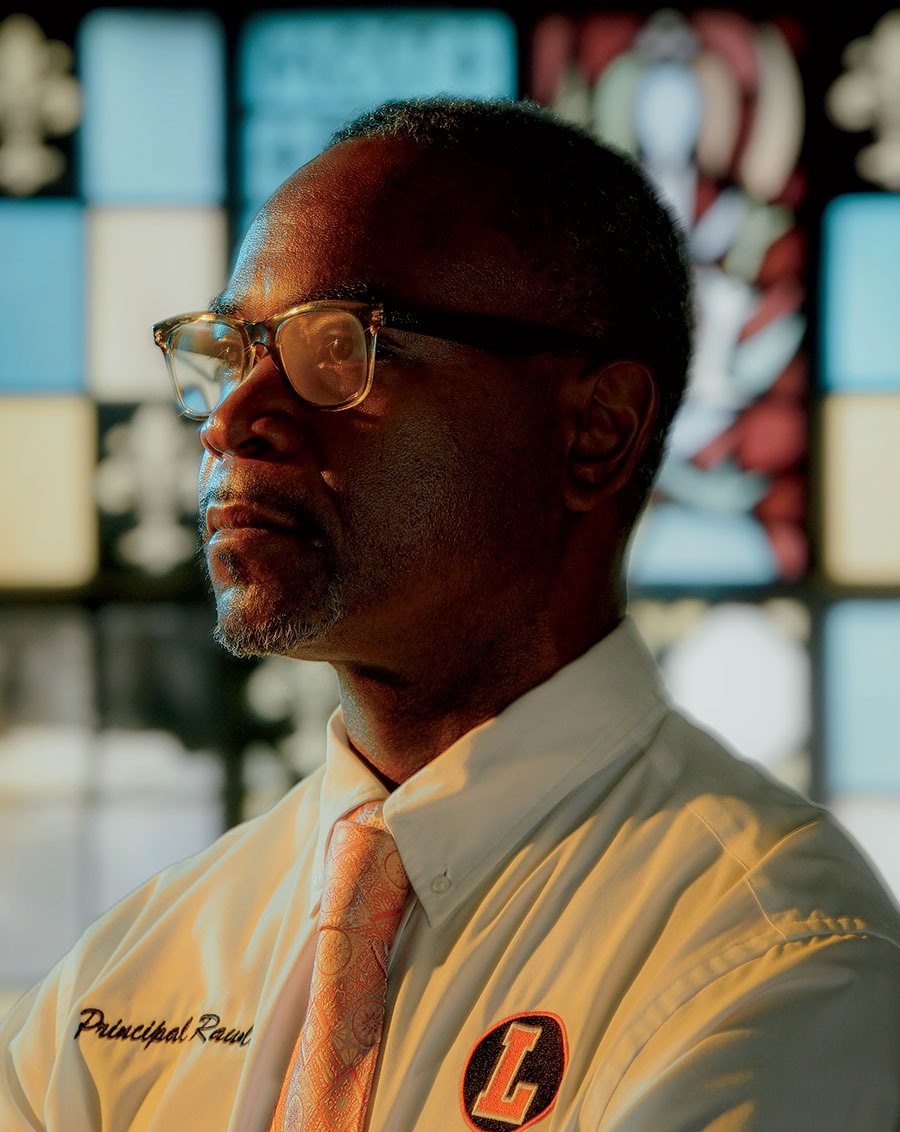As many local schools shuttered for summer break this year, Shaka Rawls, the principal of Leo Catholic High School, transformed the all-boys school into a tuition-free camp.
Rawls created what he calls an “enclave” in the Auburn Gresham neighborhood to protect the roughly 60 students who enrolled in the summer camp from the crime, poverty, gangs, and gun violence that hang low and heavy when school’s out.
“We felt like it was better to have our boys safely within our grasp,” says Rawls. “We are safer together here in this building.”
Because grades weren’t given at camp, there was no fear of making mistakes, Rawls says. There was just math, English, and ACT prep, followed by afternoons of building robots and writing code, creating mosaics, or playing with spatial articulation.
Rawls’s educational approach flows from a place of love and deep understanding. After all, the 46-year-old was once a “whippersnapper” who graduated in 1993 from the very high school he now leads. Rawls says he sees himself in his boys and them in him.
That connection works.
Since Rawls became principal in 2016, he’s instituted a science, technology, engineering, and math initiative. The high school continues to have a 100 percent graduation and college acceptance rate.
In a world where the lives of Black and brown boys on the South and West Sides of Chicago are disproportionately bombarded with things no human should have to wrestle with — fear, violence, racism, police brutality — Rawls spends his days (and many nights) nurturing, encouraging, and celebrating his 210 students, 94 percent of whom are Black, 6 percent of whom are Latino.
He and his staff work to fine-tune the students’ strengths and talents, instill a sense of purpose, and ensure they never doubt their worth. Rawls is quick to reach out if he sees one of his students wander or stumble. He estimates more than half of his students have his mobile phone number, which they use frequently.
Although he has spent the bulk of his career in administration and policy, Rawls sees himself as more of a social activist than an educator. His work, he explains, is merely a natural extension of who he is. The sense of community caregiving and advocacy Rawls promotes is an ethos, not an indoctrination, and is organic for incoming freshmen, like hopping on a train that already exists.
New students are expected to bring unique ideas to engage the community. They learn they are part of a brotherhood, in service to one another. “Our whole vocabulary is about how we are interdependent, not just inside the high school, but our community at large,” Rawls says.
This year, Rawls was inspired by a school billboard with the tagline “In a time of social distancing, Leo is bringing people together.” So he did it — virtually.
To demolish the “us and them” narrative between law enforcement and young Black and brown men, Rawls set up a series of web conferences with his students and a stream of police and military officers, FBI agents, prosecutors, and judges. The floor — or rather the chat box — was open.
The principal’s hope was that the experience would help both his students and the law enforcement officials see each other as fellow human beings.
“We wanted to dismantle this socially constructed disconnect and bring them together in the same space and realize that we all want the same thing: We have families we love; we have faith in God and community,” Rawls says. “We all want to go home at night.”



